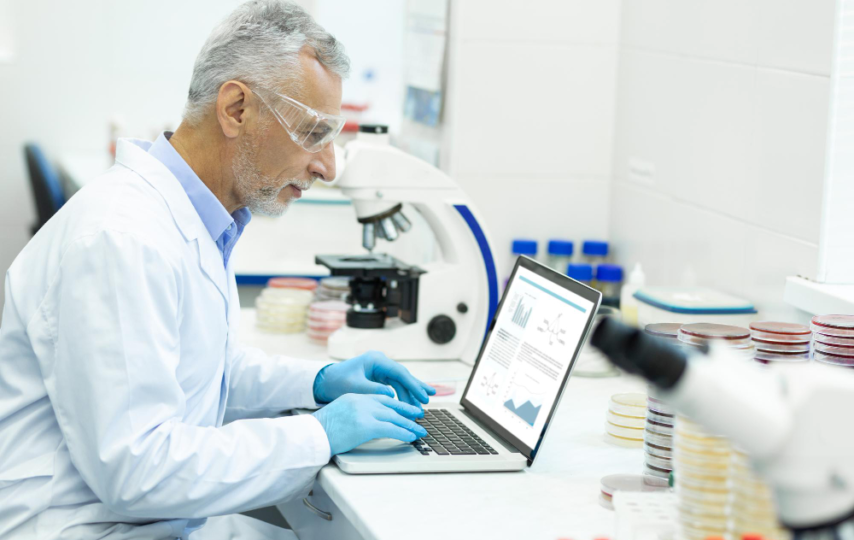Nowadays for any business, to achieve efficiency is the primary goal to stay competent in the market. In the pharmaceutical industry more focus is laid on minimizing operational costs, increasing collaboration, boosting productivity, enhancing product-based profits and many more.
In addition to goals, the pharmaceutical manufacturing sector must dedicatedly consider operational planning, drug commercialization, go-to-market strategies and others. To operate all these factors effectively automation of all the business processes is required.
Automation such as Pharma ERP software can help businesses to achieve efficiency and helps to collect, track, store and manage the free flow of diverse critical information across departments. In addition it can streamline all business operations and can handle end-to-end operations seamlessly.
Modern ERP systems
In today’s scenario, businesses have resorted to flexible, agile and resilient systems to integrate with all the diverse core business functions. All these diverse business functions are bound to a single system which helps in better collaboration and communication among teams. Plus, the real time application helps in traceability and transparency of all business operations.
Different types of ERP deployment
There are three common types of ERP deployment.
Cloud
Cloud ERP is hosted in the cloud and the service is delivered through internet connection using a SaaS platform. Some of the benefits of cloud solutions are listed below.
- Upfront payment is not required for hardware or software.
- This software can be accessed remotely from any location with just an internet connection in the device.
- Updation and upgradation of software costs are managed by the cloud vendor.
- For any IT support services, data centers should be consulted.
- Data is stored in the cloud, so the ERP vendor ensures security of the entire company’s data.
- Cloud services can be expansive based on the requirements of the business.
On-premise
In this type, the ERP system is set up in the physical location of the office. All the data is safely stored in the internal servers. The main benefits of the on-premise system are that the company has the control of the implementation process, control of the data security and more customisations are possible.
Hybrid
Implementation of both the cloud and on-premise system comes under the hybrid ERP system. Some of the benefits of the hybrid system are listed below.
- Proper integration of two ERP systems will increase flexibility of all the processes and increased efficiency of data flow.
- Comparatively, less training expenses are included.
Role of ERP system in the pharmaceutical manufacturing industry
Before learning about the different responsibilities of ERP in the pharma sector, let’s discuss some of the challenges.
- Frequent change in health reforms.
- Regulatory changes in different countries.
- Supply chain disruption- a global issue.
- Fluctuating market trends and changing customer expectations.
- Increase in competition worldwide.
- Consumer demand for high quality and affordable drug price.
Customers are demanding high quality drugs for an affordable rate which is the current trend globally. ERP can help the pharma business to achieve it by streamlining business operations and reducing wastage, minimizes costs and increases efficiency.
A modern ERP software is efficient to fulfill all the responsibilities of a pharma business beginning from planning, purchasing for the inventory, human resources, sales and marketing and customer relation management. It will help pharma companies to achieve operational efficiency, real time data updates, and transparency which will help in excellent collaboration.
Impact of ERP system for the pharma manufacturing process
Consumer demand is at the highest level now and also it is backed by strong research, so during this phase it is crucial to implement a seamless IT infrastructure that will help in leveraging the data to enhance the productivity of business.
Modern system functions in a single database where all the processes are where all the internal processes and departments are controlled, connected and integrated into a centralized system.
Efficiently manages formulation
Formulation is a significant aspect of the pharmaceutical business. Any error in formula will impact the drug production.
An ERP system safeguards the formulation data and maintains the copyrights.It manages the entire functions of formulation including recording, storing, retrieving and revising every formula used in the production process. In addition, it maintains the entire uncountable instructions and offers multiple beneficial functionalities.
Permits global integration
Pharmaceutical products are manufactured in different companies which are in different countries. So it is mandatory for all the individual companies for a global integration.
An ERP system helps businesses with the integration. Further it helps to tackle challenges posed by diverse languages, currencies and time zones, taxing etc.
Meet the requirements of regulatory compliance
An ERP system for the pharma sector keeps updated information about the recent developments in regulatory compliance. It has features such as workflows, audit trails, approval controls that help in adhering to both local and international guidelines.
Enhanced quality control and traceability
The company which gives first priority to the quality will always stay on top. It is mandatory for all the manufactured products to be safe for human consumption. ERP helps in selecting the supplier who distributes good quality raw materials at an affordable rate. Plus, the raw materials also undergo inspection and only after the approval, is sent for the production process. The materials which fail the quality are rejected and sent to quarantine.
ERP has trace and tracking ingredients feature which helps in manufacturing high quality products.
Effective inventory and supplier management
ERP with its real time features gives insights on the stock levels of the inventory. In addition, it stores all the data of the product, such as name, manufacturing date, expiry date and storage conditions. This helps in maintaining the right inventory levels in different temperatures.
The serialization feature in ERP helps in tracking the product seamlessly. In case of any recalls, the batch can be retrieved faster.
ERP also helps in finding the right supplier who distributes quality goods as the recognised supplier will be certified and registered in the system.
Supports clinical trials, commercialisation and sample management
Clinical trials and sample management is crucial for the product to qualify further for more production and certification.
ERP system helps to record all the trials, nature of these trials, sampling details and maintains all these history in the database.
Further, it supports commercialisation functionalities such as sales and marketing, quality management and distribution.
Conclusion
Finally, integrating ERP solutions with the pharmaceutical business processes will enhance the production functionalities. It assists in producing excellent quality goods, adheres to compliance, effective inventory management, formulation and many other processes.
In addition, its real time and traceability features provide accurate reporting that is helpful in making better decisions for the company. Overall, it is an effective tool to meet all the global requirements and stay competent in the market.








